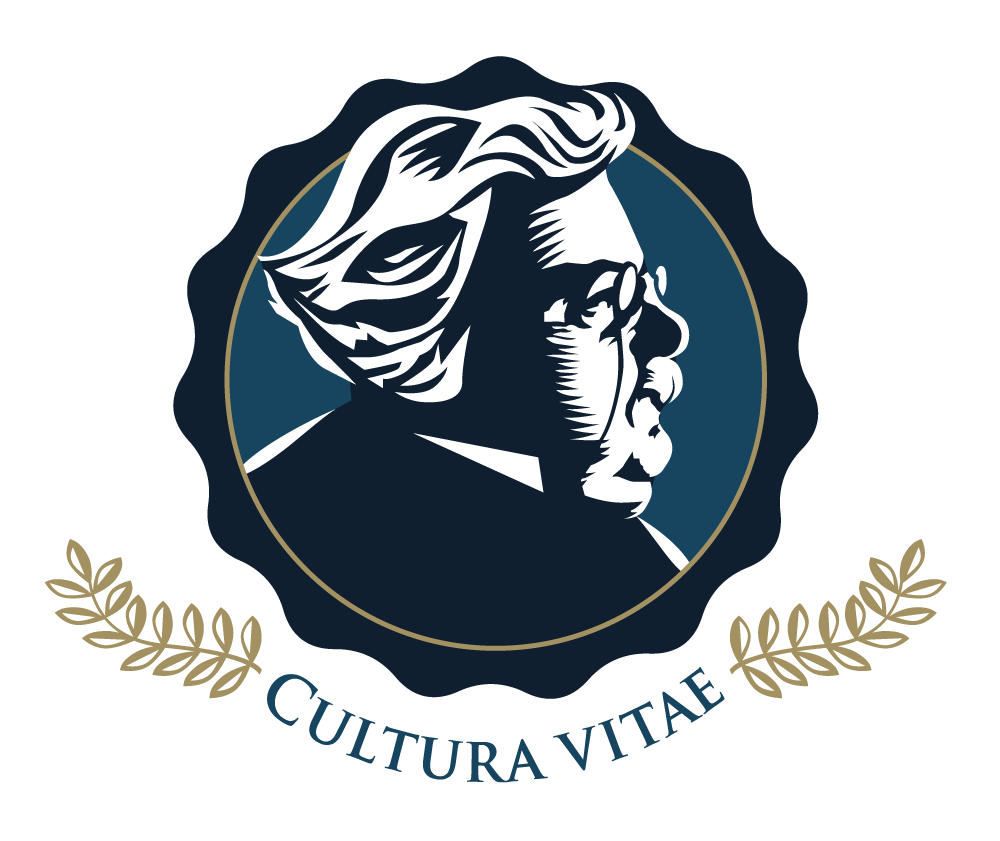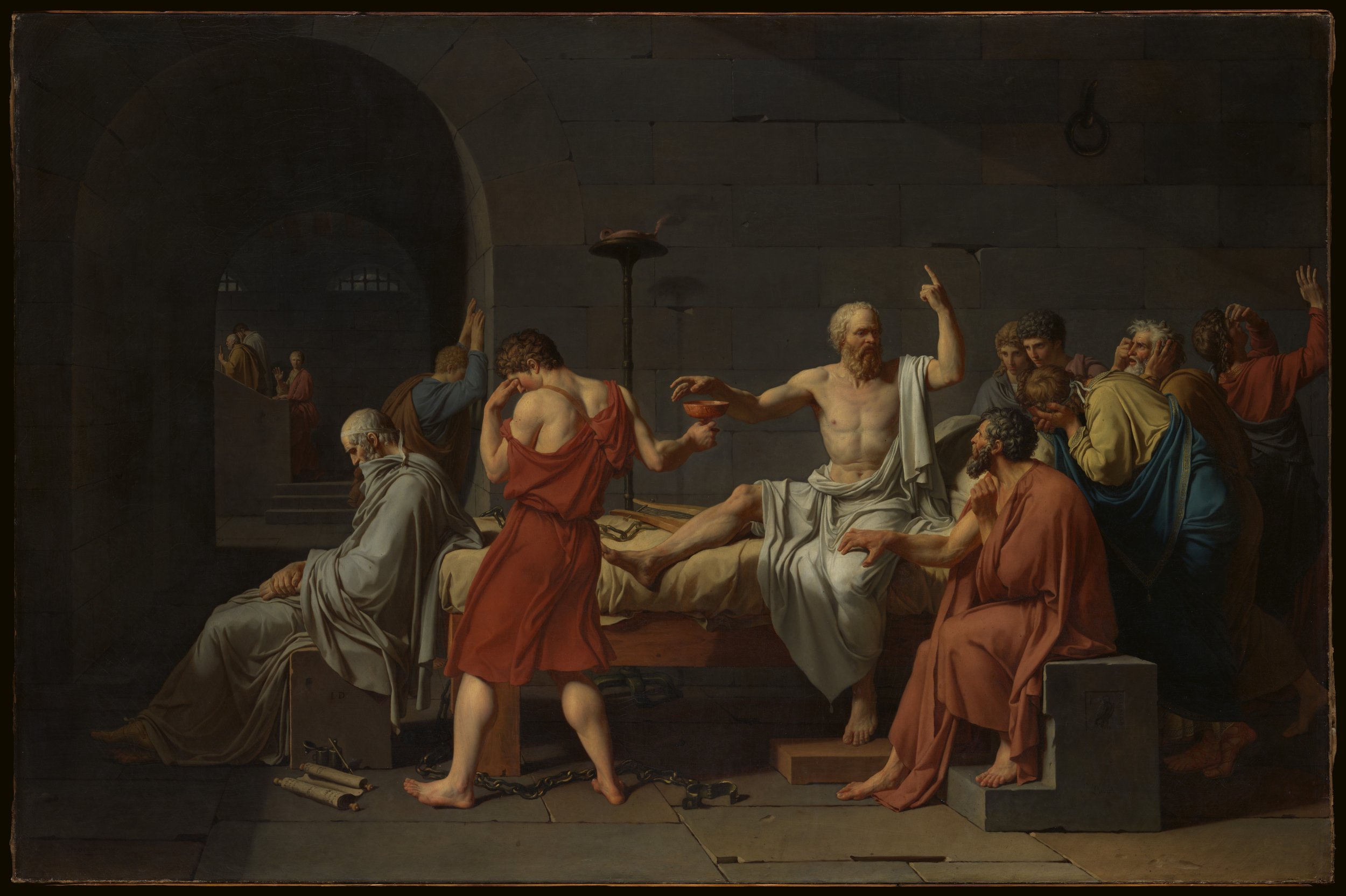Getting to Know the Headmaster - Part 4: The Socratic Method
The Death of Socrates by Jacques-Louis David
There is no doubt that one can learn a great deal from listening to a carefully prepared lecture, but in my forty-five years of teaching I have for the most part employed the Socratic method because I have found it to be the most effective way to move minds toward the truth. The contemporary classical education movement frequently extols the virtues of the Socratic method, but one must admit that its popularity involves a certain irony since the author of this mode of teaching was sentenced to death for asking his fellow citizens fundamental questions that exposed their ignorance. As it turns out, it is much more difficult than most people realize to answer seemingly simple questions such as, “What is virtue?” Socrates, of course, did not hesitate to direct his questions to those who professed to have all the answers, and he did so in public where their embarrassment was visible to all. Yet in the Platonic dialogues we also see Socrates using this same method among friends who sought his assistance precisely because they believed that the man who knows the right questions—not to mention the order in which they should be asked—must also possess the true answers.
While there is much debate about how much the ironical Socrates really did claim to know, virtually everyone agrees the Socratic method proceeds by question and answer. Just as a good doctor must first ask questions to reveal the nature of a patient’s illness before the doctor can apply the proper remedies to restore the patient to bodily health, so the teacher must first ask questions to reveal what a student does not know so that the teacher can assist the student in acquiring intellectual health, i.e., knowledge. Now, according to St. Thomas Aquinas in his On the Teacher, “one person is said to teach another inasmuch as, by signs, he manifests to another the reasoning process which he himself goes through by his own natural reason.” But the Socratic teacher, rather than present what he knows in the formal and direct mode of a lecture, uses questions to examine his students to determine what they know and do not know, and thus he can engage them at their own level.
But this is essential: the teacher is no more able to transfer knowledge into the minds of his students than is the physician to transfer health into the bodies of his patients. The physician’s art must imitate and assist nature’s own healing processes. Likewise, because the mind is ordered by nature to truth just as the body is ordered by nature to health, the teacher’s art must imitate and assist the natural processes of reasoning. As St. Thomas Aquinas explains, “Just as the doctor is said to heal a patient through the activity of nature, so a man is said to cause knowledge in another through the activity of the learner’s own natural reason, and this is teaching.” To assist the student’s own power to reason so that he might be led from what he already knows to what he does not yet know, the Socratic teacher examines his students by questioning them to expose common intellectual ailments. By asking questions rather than simply presenting answers, the Socratic method, as compared to that of the lecturer, is indirect, which more effectively compels students to exercise their own minds and to reason by their own lights. Here it helps to recall the Platonic notion that education does not consist in bestowing intellectual vision so much as in “turning” the mind’s eye toward the light of reality. In his dialogues, Plato shows that this turning—literally a conversion—is achieved best through conversation. The Socratic teacher knows that his students share but do not yet clearly see the common notions about reality that are in all men. With skillful questioning, the teacher can help students grasp these fundamental notions, notions that are the starting points of all knowledge. By asking the right questions in the right order, the Socratic teacher can lead students to the knowledge of the arts and sciences grounded upon these starting points, or first principles.
Although the Socratic teacher proceeds in a less formal and less direct manner than the lecturer, his questions are anything but random because they arise from knowing both the subject matter and his students’ intellectual condition. Stated otherwise, by so-to-speak “indirectingly” directing his students, the Socratic teacher himself must be guided by the intrinsic order of the subject matter. In treating of the various arts and sciences, he knows and proceeds according to what is antecedent and what is consequent. Merely asking questions without knowledge of the order of learning would ultimately result in meaningless chatter and intellectual chaos.
However gifted the teacher, and whatever mode of teaching he employs, the acquisition of knowledge ultimately depends on the student’s desire to learn, and we see in the Platonic dialogues both those who are docile and those who are hostile to the Socratic method. The Socratic teacher, if he provides a charitable and humble example, can assist students of goodwill in acquiring the good habits necessary for learning. In a very real sense, then, teachers who employ the Socratic method must themselves be students of that which they do not know so that they may not only continue to learn but also provide a living model of the intellectual and moral virtues they hope to inspire in their students.

